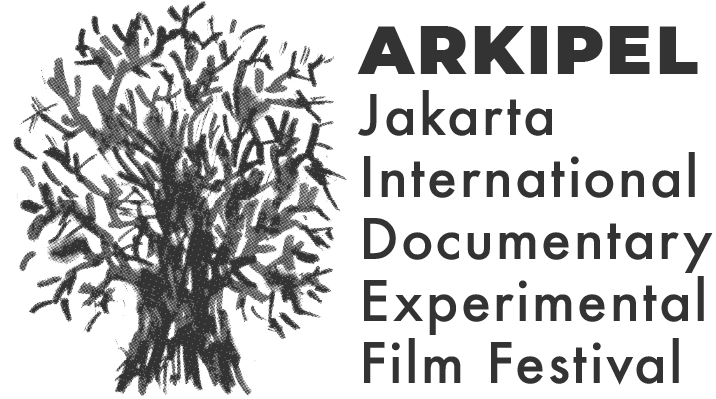JAKARTA, ARKIPEL, Forum Lenteng — Hari ini, 12 September, 2014, salah satu program kuratorial ARKIPEL Elelctoral Risk – Jakarta International Documentary Film Festival 2014, dihelatkan di Goethe Institut Jakarta, Jalan Sam Ratulangi. Filem News from Ideological Antiquity: Marx—Eisenstein—Capital (2008) karya Alexander Kluge, tayang di aula GoetheHaus pada pukul 13.38 WIB, telat sekitar setengah jam dari waktu yang telah ditentukan.
Buku tamu menunjukkan jumlah penonton sebanyak 20 orang. Terlihat, sebagian besar dari penonton ini berusia muda, antara 20-30 tahun. Awalnya, bangku penonton hanya terisi beberapa saja, tak sampai sepuluh bangku. Jumlah penonton terus bertambah seiring berjalannya durasi filem meskipun tak semua penonton yang datang menghabiskan waktunya untuk menyaksikan keseluruhan filem.
Filem Kluge yang berdurasi 570 menit ini akan dipresentasikan dalam empat sesi. Lima jam pertama akan diputar dalam dua sesi di hari ini, dan sisanya akan diputar besok, 13 September, 2014, pada waktu dan tempat yang sama, yang mana setelahnya akan diselenggarakan sebuah diskusi mengenai filem ini dan sutradaranya, bertajuk “Marxisme itu Sesuatu yang Filemis”, pada pukul 19.30.
Artikel ini mulai ditulis pada penghujung waktu jeda istirahat antara sesi pemutaran pertama dan kedua. Sebagaimana yang sebelumnya disampaikan oleh Akbar Yumni, sang penyaji sekaligus kurator program, bahwa tata cara penayangan filem Kluge yang dibagi menjadi empat bagian tersebut dianggap ‘tidak bermasalah’ berhubung karena montase filem ini sendiri menggunakan pendekatan montase Brecht, yang tidak menyoalkan awal dan akhir, sehingga filem dapat dilihat secara terpisah-pisah.
Pada waktu jeda istirahat inilah, Benny dan Galang, dua mahasiswa dari Universitas Bakrie yang sengaja datang untuk menonton karya Kluge, menyampaikan pendapatnya mengenai penayangan filem tersebut.
“Gue pengen tahu Das Kapital dalam versi filem,” jawab Benny, ketika ditanya alasannya menonton News from Ideological Antiquity: Marx—Eisenstein—Capital. “Dan gak nyangka ternyata seperti itu. Ekspektasi gue awalnya, filem ini cuma kayak ngegambarin kaum pekerja. Ternyata, ini alurnya bermetamorfosa, memang benar-benar dikorek habis human nature dan esensi dari Das Kapital itu.”
Ketika ditanya pandangannya mengenai distribusi pengetahuan soal Marxisme di Indonesia, Galang berpendapat bahwa pembahasan soal Marxisme masih tabu di lingkungan masyarakat.
“Bahkan di wilayah akademik sekalipun,” serunya berpendapat. “Di jurusan ekonomi sendiri, sangat jarang. Dan upaya-upaya untuk memindahkannya ke dalam bentuk filem, menunjukkan kalau ternyata berbicara soal kapital itu tidak hanya soal komunis, tapi lebih dari itu, bisa ngomong soal cinta, air, jiwa, dan lainnya.”

Benny (kiri) dan Galang (kanan), dua mahasiswa Universitas Bakrie yang datang menyaksikan filem karya Kluge.
Pendapat yang tak kalah menarik, datang dari Ucu, seorang warga Jakarta dan pembuat filem dokumenter independen. Dia mengaku tahu ARKIPEL dari seorang temannya, bernama Florian Kunert, seorang filmmaker independen yang tinggal di Jerman, yang datang ke ARKIPEL tahun 2013.
“Dia bilang ke saya kalau festival ini bagus dan menarik. Berhubung namanya ‘arkipel’, terasa bernuansa etnografis itu, saya berpikir untuk datang, kali saja bermanfaat untuk proyek saya,” terang Ucu. “Teman saya sendiri juga berniat akan mengirim (karya) ke ARKIPEL nantinya.”

Ucu, salah seorang filmmaker yang datang ke ARKIPEL Electoral Risk untuk menyaksikan filem karya Kluge.
“Saya puas untuk pemutaran kali ini, karena dapat melihat karya Kluge di Indonesia,” lanjut Ucu. “Dulu saya pernah lihat karya Kluge, tahun 2012, sewaktu ikut seminar di Frankfurt. Jujur, di sesi ini, saya puas. Sewaktu menonton itu, berasa ingin nonton lagi, nonton lagi.”
“Kenapa, tuh, kok punya kesan begitu?” tanya saya.
“Karena menurut saya, Kluge itu cerdas,” jawab Ucu. “Dia bisa memberikan tafsir tentang Marxisme dengan sederhana, tidak dingin. Tapi juga memasukkan momen-momen puitis, terutama pada sepertiga terakhir dari 3 jam di sesi pertama tadi.”
Ucu juga sempat menyampaikan kritiknya tentang perhelatan acara Malam Pembukaan ARKIPEL Electoral Risk. Menurutnya, presentasi enam karya pilihan yang diputar pada Malam Pembukaan, terasa sedikit berat bagi penonton awam.
“Karena memang formatnya sangat berbeda dengan bioskop. Saya justru berekspektasi, seharusnya, formatnya seperti bioskop sehingga akan menghindari kemungkinan penonton meninggalkan ruangan ketika filem diputar.”
Sementara itu, Akbar Yumni sendiri mengaku bahwa pemutaran pada hari ini cukup lumayan.
“Untuk filem seperti Kluge, hingga akhir sesi pertama, masih ada sekitar beberapa orang yang bertahan, itu lumayan,” ujarnya. “Sebab, minat penonton untuk menyaksikan filem eksperimental itu memang masih minim, apalagi dengan durasi yang sangat panjang.”
Sekitar pukul 16.00 WIB lewat beberapa menit, para penonton yang masih bertahan di sekitaran GoetheHaus, dipersilahkan masuk kembali ke aula untuk melanjutkan sesi kedua. Jumlah penonton berbeda tipis dengan sesi pertama, meskipun lebih sedikit.
Menjelang maghrib, di tengah keheningan suasana di Goethe Institut Jakarta, samar-samar terdengar, dari dalam aula GoetheHaus, suara denting piano yang merupakan audio dari beberapa adegan di filem karya sutradara Jerman Alexander Kluge itu. Filem masih akan berlangsung puluhan menit kemudian: mendedah Marxisme, Eisenstein, dan Das Kapital melalui eksperimentasi bahasa visual.
News from the First Two Screenings of Das Kapital Kluge.
Jakarta, ARKIPEL, Forum Lenteng — Today, 12th of September, 2014, one of the curatorial programs of ARKIPEL Electoral Risk – Jakarta International Documentary Film Festival 2014, was held in Goethe Institut Jakarta, Jalan Sam Ratulangi. The movie “News from ideological Antiquity: Marx-Eisenstein-Capital” (2008) by Alexander Kluge, was screened in the GoetheHaus’ hall at 13:38, about half an hour late from scheduled time.
Guestbook indicated about 20 people in the audience. Most of the audiences are young, between 20-30 years old. Initially, there were less than ten seats filled with audience. Attendance continued to come in over the duration of the film, though not everyone stayed until the end of the movie.
The movie lasts about 570 minutes, which will be presented in four sessions. The first five hours will be played in two sessions today, and the rest will be played tomorrow, 13th of September 2014, at the same time and place, after which a discussion will be held about the film and the director, titled “Marxism is Something Filmic” at 19.30.
This article was written at the end of break session between the first session and second session. As previously stated by Akbar Yumni, the presenter as well as the program curator, the division of the movie into four separate sessions is “not a problem”, as the movie used the Brecht’s approach in montage which stresses no importance between the beginning and the ending so that the movie can be split and viewed separately.
At break time, Benny and Galang, two students from the University of Bakrie who had come to watch Kluge’s work, expressed their opinions on the film.
“I wanna see the movie version of Das Kapital,” Benny replied, when I asked why he attended the screening for News from ideological Antiquity: Marx-Eisenstein-Capital. “I didn’t imagine the movie would turn out the way it did. I thought it would depict only the workers. Apparently the movie experienced metamorphosis throughout. It truly dug up the aspect of human nature and the essence of Das Kapital.”
When I asked about his thoughts on the distribution of knowledge of Marxism in Indonesia, Galang argued that the discussion about Marxism is still a taboo in the community.
“Even in the academic field,” he exclaimed. “The Economics majors very rarely talk about Marxism. And the efforts made to translate that into movie indicate that talking about capital is not just talking about communists, but more than that, we can talk about love, water, life, and so on and so forth. “
Another interesting opinion came from Ucu, an independent documentary filmmaker. He claimed to know ARKIPEL from a friend of his, named Florian Kunert, an independent filmmaker living in Germany, who came to ARKIPEL in 2013.
“He said to me that this festival is nice and interesting. Since the name ‘arkipel’, nuanced ethnographic feels to it, I contemplated on coming, thinking it’ll be helpful for my project,” said Ucu. “My friend himself also intends to send his work to ARKIPEL later.”
“I’m very satisfied with the screening because I can see Kluge’s work in Indonesia,” said Ucu. “I used to watch Kluge’s work in 2012, when I joined the seminar in Frankfurt. Honestly, I was satisfied with this session. I feel like watching it over and over again. “
“Why did you get that impression?” I asked.
“Because I think Kluge’s smart,” replied Ucu. “He can give a simple interpretation of Marxism, nothing so cold. But he also incorporated poetic moments, especially in the last third of 3 hours in the first session today. “
Ucu also expressed criticisms about the Opening Night of ARKIPEL Electoral Risk. According to him, the presentation of chosen six works to be screened on Opening Night, felt a little too heavy for the audience.
“Cause the format of presentation is very different from the cinema. I actually expected it to be having a movie theater format to avoid the possibility of the audience leaving the room when the film is playing.”
Meanwhile, Akbar Yumni himself admitted that the screening went smoothly today.
“For a film like Kluge, to have few people ‘survived’ the first session was a passable result,” he said. “Cause the audience’s interest to watch experimental film is still minimal, especially with such a very long duration.”
Around 04:00 pm through a few minutes, the surviving audiences were welcomed to go back to the hall for the second session. The number of the audience differed very little with the first session, albeit a little less.
Towards sunset, amid the silence of the atmosphere at the Goethe Institute Jakarta, vaguely in the GoetheHaus hall, the piano sound that serves as the audio of several scenes in the film work of German director Alexander Kluge’s is heard. The movie itself will still carry on for hours to come: examining Marxism, Eisenstein, and Das Kapital through the language of visual experimentation.




